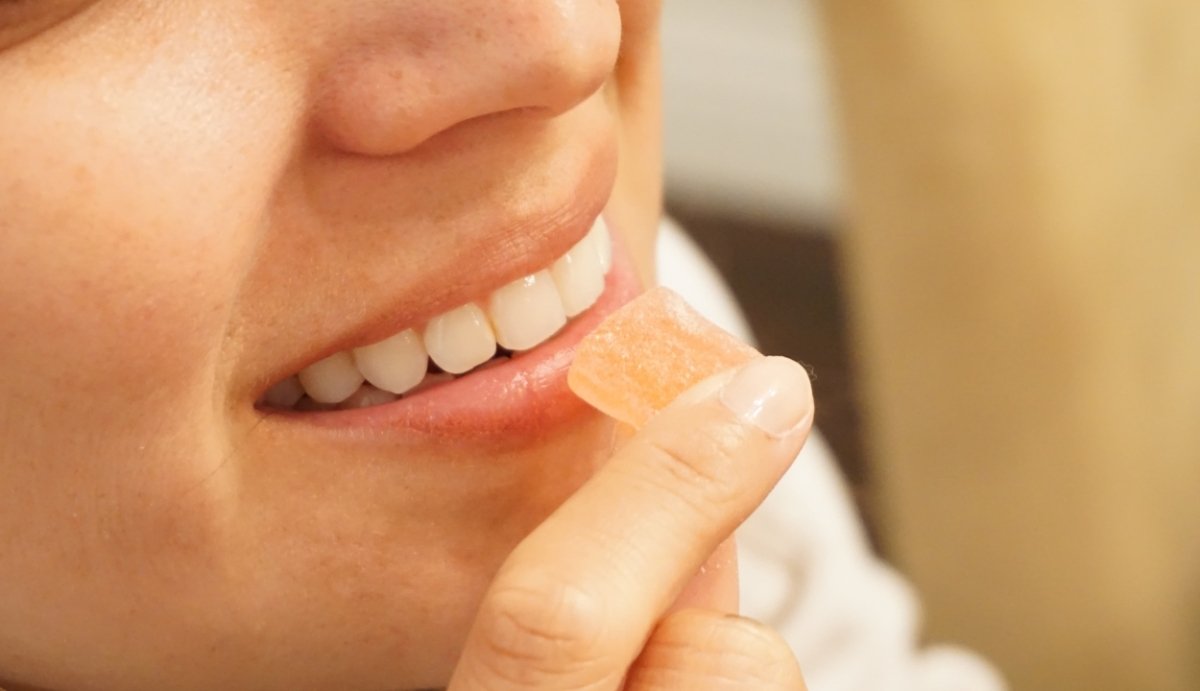Your Cart is Empty
FREE SHIPPING ON ALL ORDERS $75+
Delta-11 is a potent cannabinoid with effects at least three times stronger than traditional THC. This begs the question: how much THC is in Delta-11 products?
When made from hemp, Delta-11-THC products contain less than 0.3% Delta-9-THC, which aligns with federal hemp definitions. However, the exact THC content can vary from brand to brand, so it's essential to confirm a product's legality with a third-party lab report.
Not all Delta-11 products comply with federal hemp laws, and it's crucial to know how much THC is in Delta-11 to avoid legality issues. Let's explore some key points about Delta-11-THC:
Table of Contents
How Much Delta-11 is Actually in Delta-11 Products?
What Percent Delta-9 is in Delta-11 Products?.
What’s the Legal Limit for Delta-9 in Hemp Products?
What Other Cannabinoids in Delta-11-THC Products?
Other Delta-11 Ingredients to Consider
Where to Get Federally Legal Hemp THC Products
How much THC is in Delta-11 depends on the product and brand. Delta-11 content usually ranges from 5-20 milligrams per dose, and it's often mixed with other THC isomers like Delta-8, Delta-10, THC-O, or HHC. You can find out how much Delta-11 is in a product by checking third-party lab results, which also confirm label accuracy and ensure safety.
Many people ask how much Delta-9-THC is in Delta-11 products since this determines legality. Hemp products must contain less than 0.3% Delta-9-THC. It's crucial to check lab results to ensure compliance, as some products may exceed this threshold due to concentration during manufacturing.

By federal law, hemp products can contain up to 0.3% Delta-9-THC. However, if you're buying from a dispensary, the product may be subject to state laws, which can allow higher Delta-9 concentrations. Always check lab results to confirm legality and avoid potential legal issues.
Most Delta-11 products contain other cannabinoids, both psychoactive and non-psychoactive. You might find CBD, CBN, CBG, or CBC, along with psychoactive cannabinoids like Delta-8, Delta-10, THC-O, or HHC. Terpenes are also common, providing unique flavors and effects. To understand the full cannabinoid blend and know how much THC is in Delta 11, check third-party lab results.
Beyond THC, consider other ingredients in Delta-11 products, like sweeteners, dyes, or flavorings. Some of these may cause allergies or other issues. It's also critical to check for potential contaminants like pesticides, solvents, mold, or microbes. Reliable brands use third-party lab tests to ensure purity and quality, so always choose products with this certification.
If you want products with less than 0.3% Delta-9-THC, consider our Cloud9 and Elev8 Collections. These products meet federal guidelines and are made according to cGMP standards. Our edibles, tinctures, and hemp flower offer a variety of dosing options for a controlled and compliant experience.
Yes, Delta 11 THC can get you high. It's known to produce strong euphoric effects, often described as at least three times stronger than traditional THC.
Delta 11 may cause a positive result for THC on drug tests. It is structurally similar to other THC compounds, and many drug tests do not distinguish between different forms of THC.
Delta 11 is generally stronger than Delta 8. While Delta 8 is known for its mild psychoactive effects, Delta 11 is considered more potent and may produce more intense effects.
Delta 11 is one of the strongest cannabinoids in terms of psychoactive effects. While there are other potent cannabinoids, Delta 11 stands out due to its significant impact.
The duration that Delta 11 stays in your system varies based on several factors, including dosage, frequency of use, metabolism, and body composition. Generally, it can be detected in urine for several days to weeks after use.
Delta 11 is typically stronger than Delta 8 and Delta 10. It is often described as being more potent than Delta 9, the traditional form of THC, though individual experiences may vary.
Comments will be approved before showing up.



